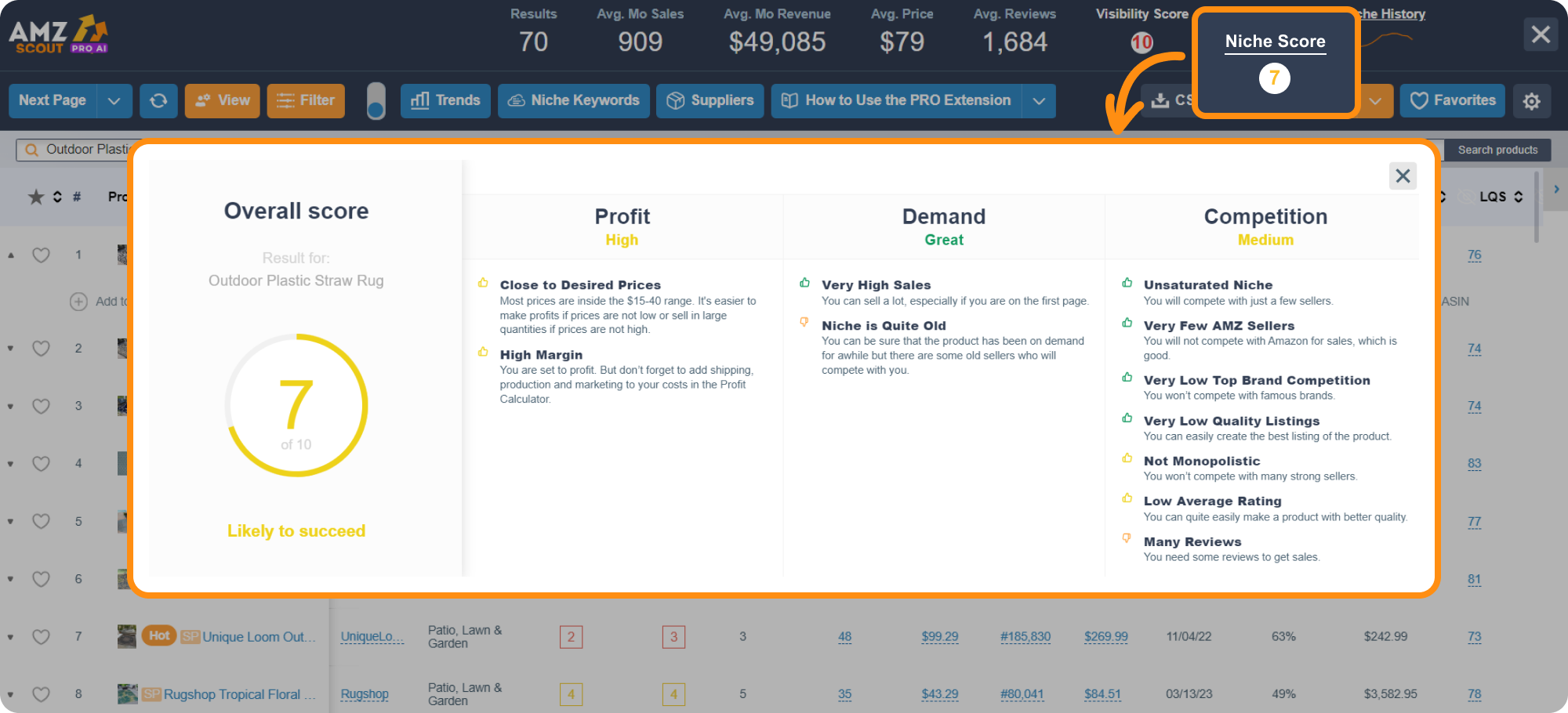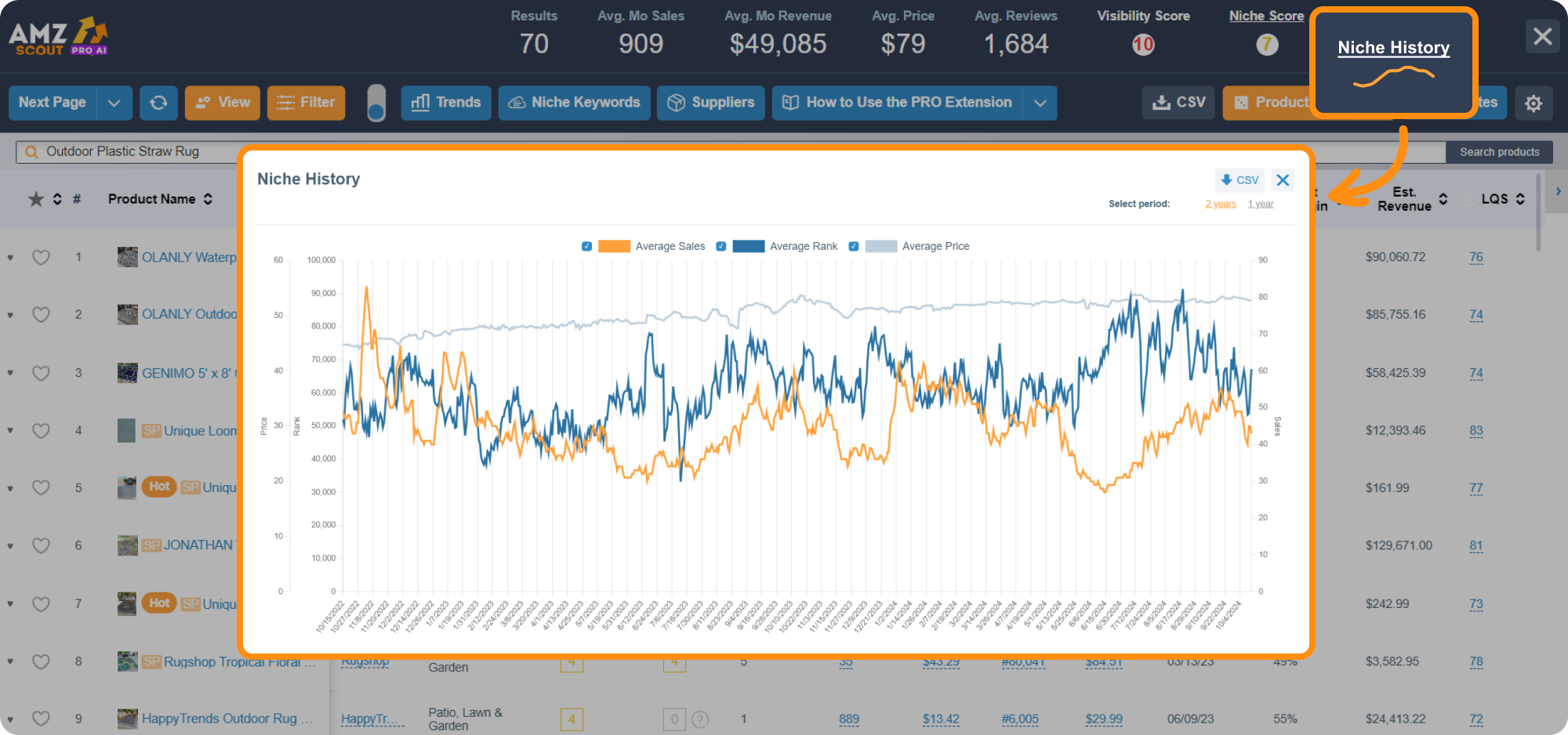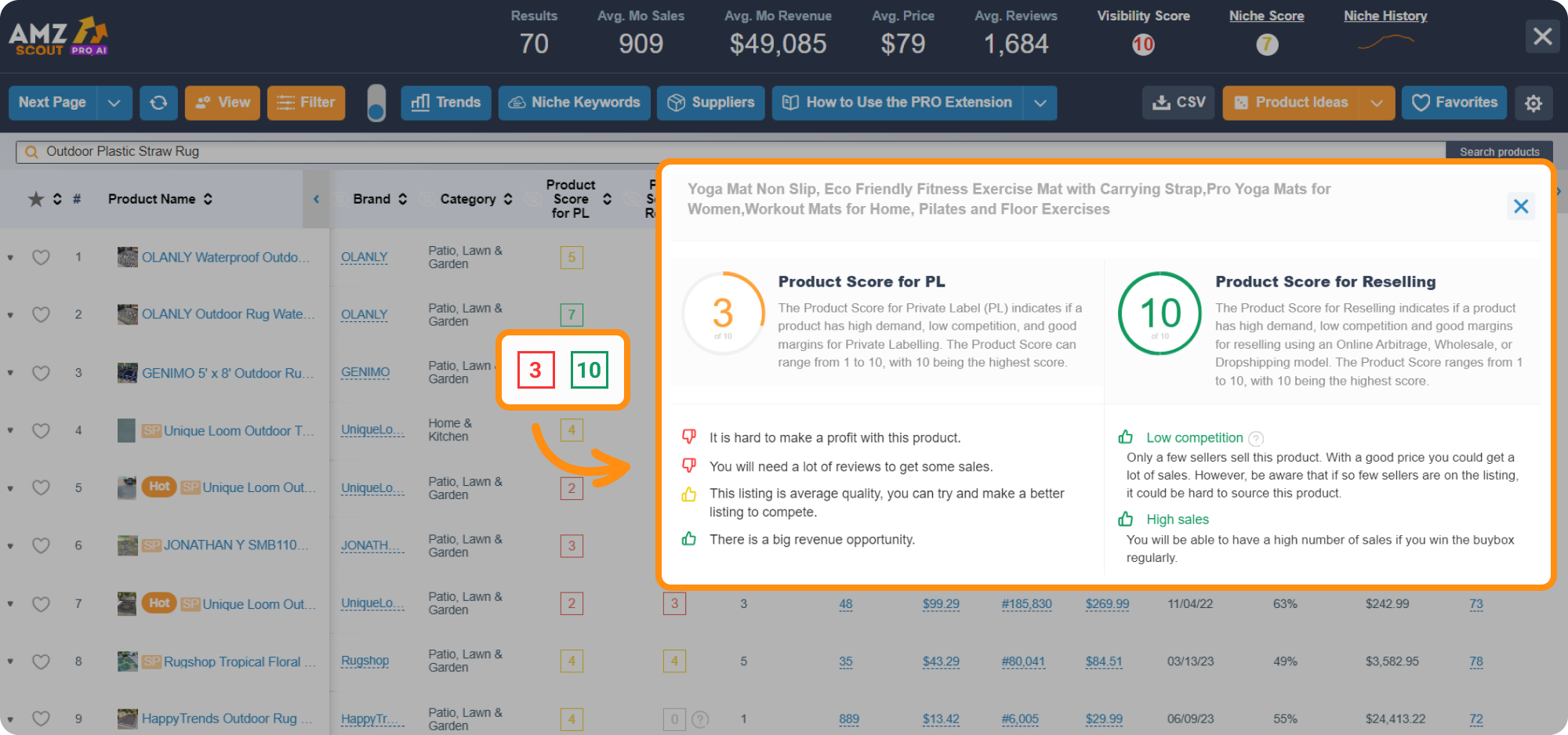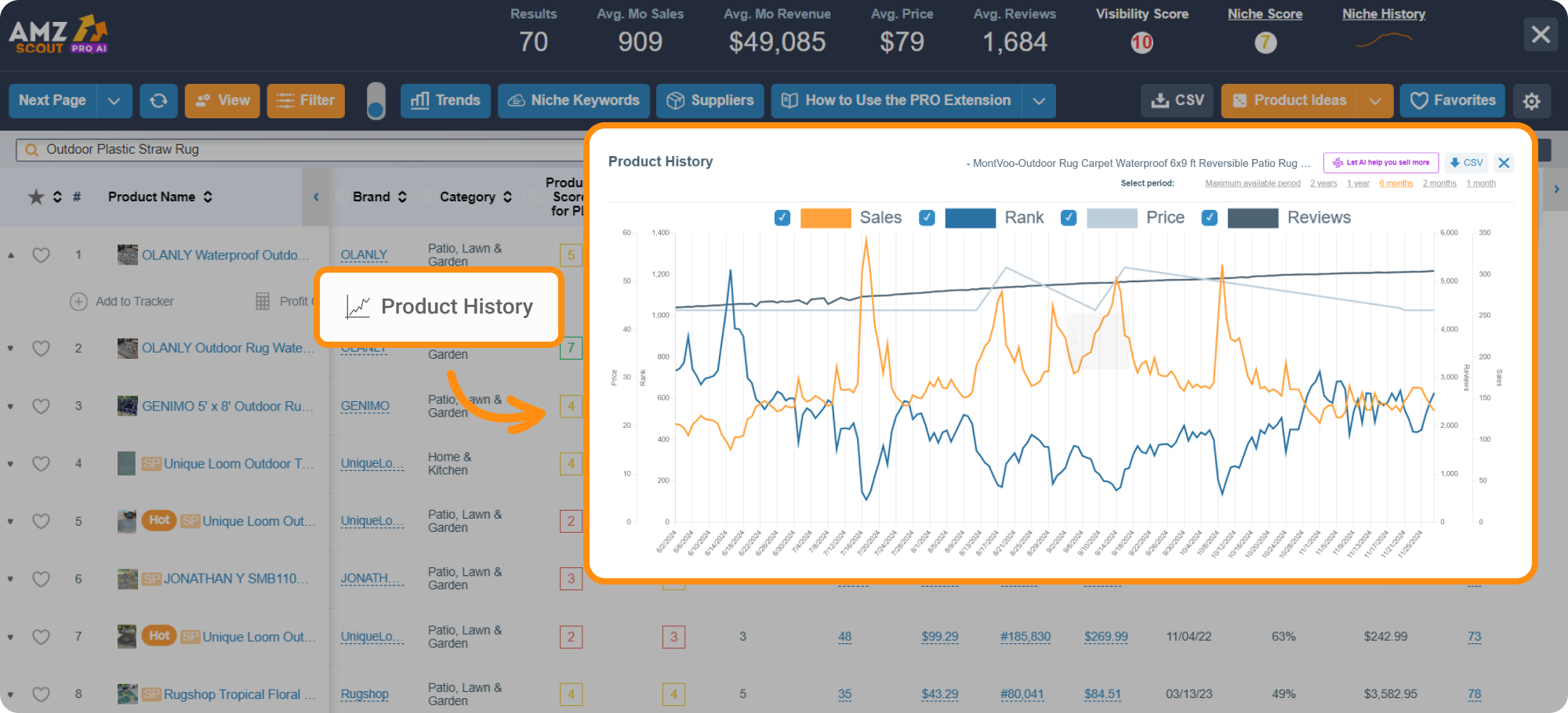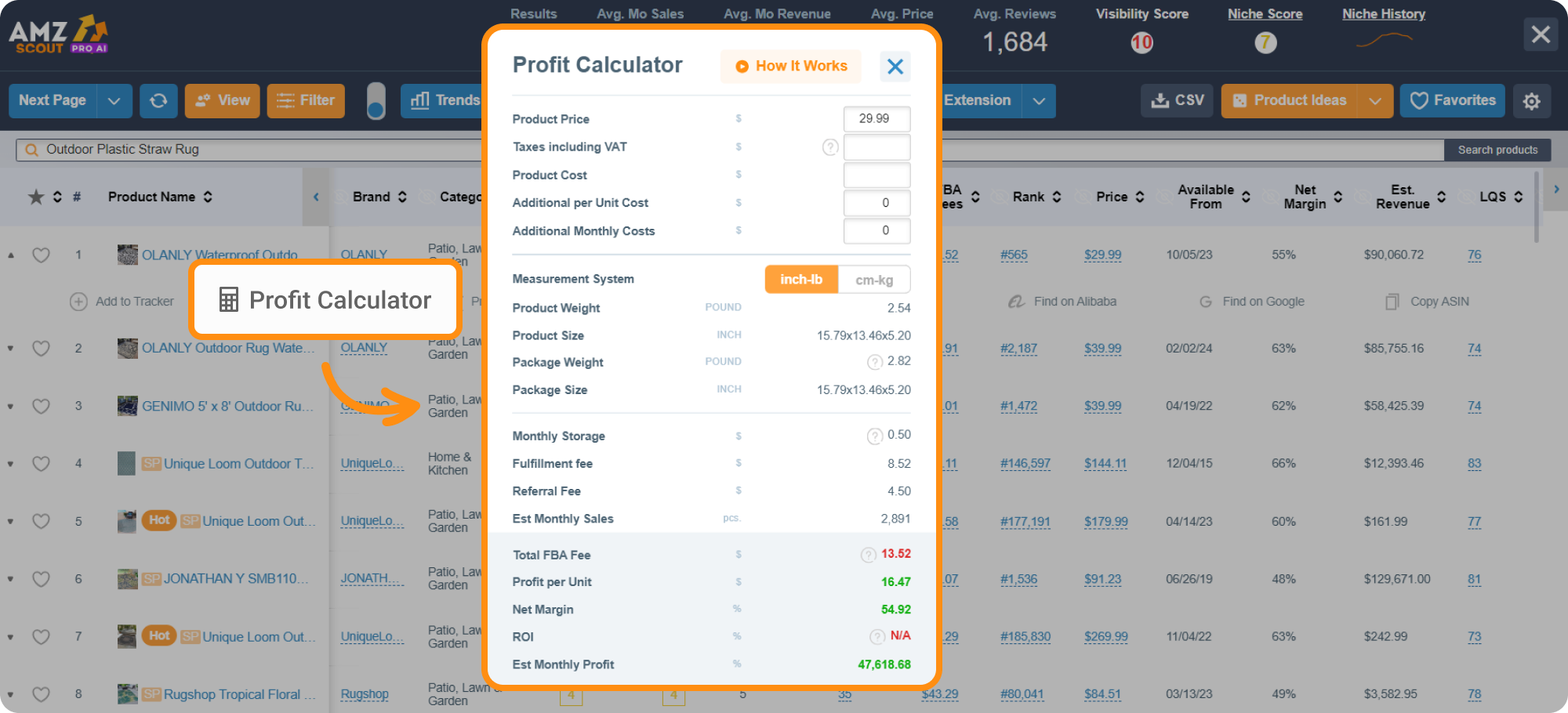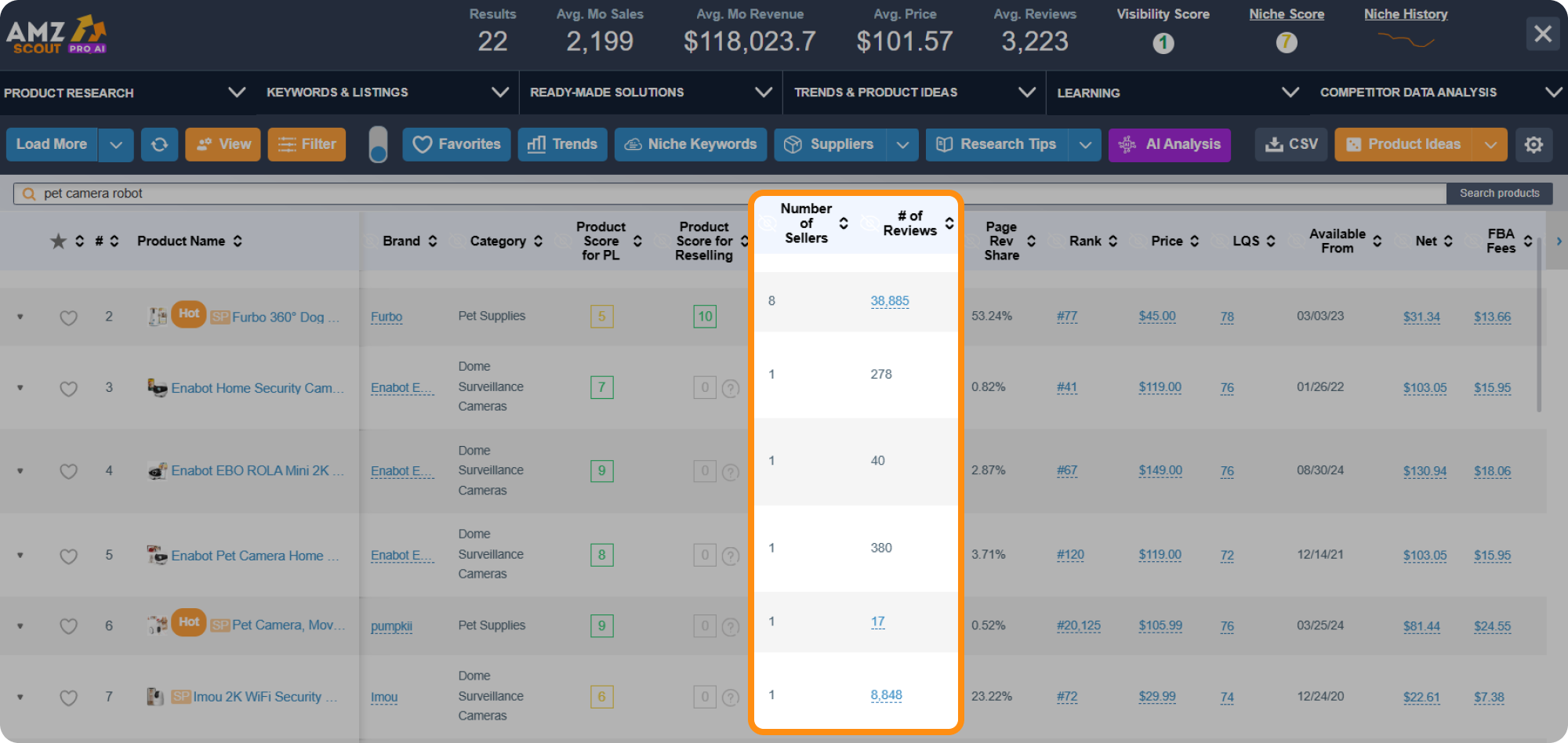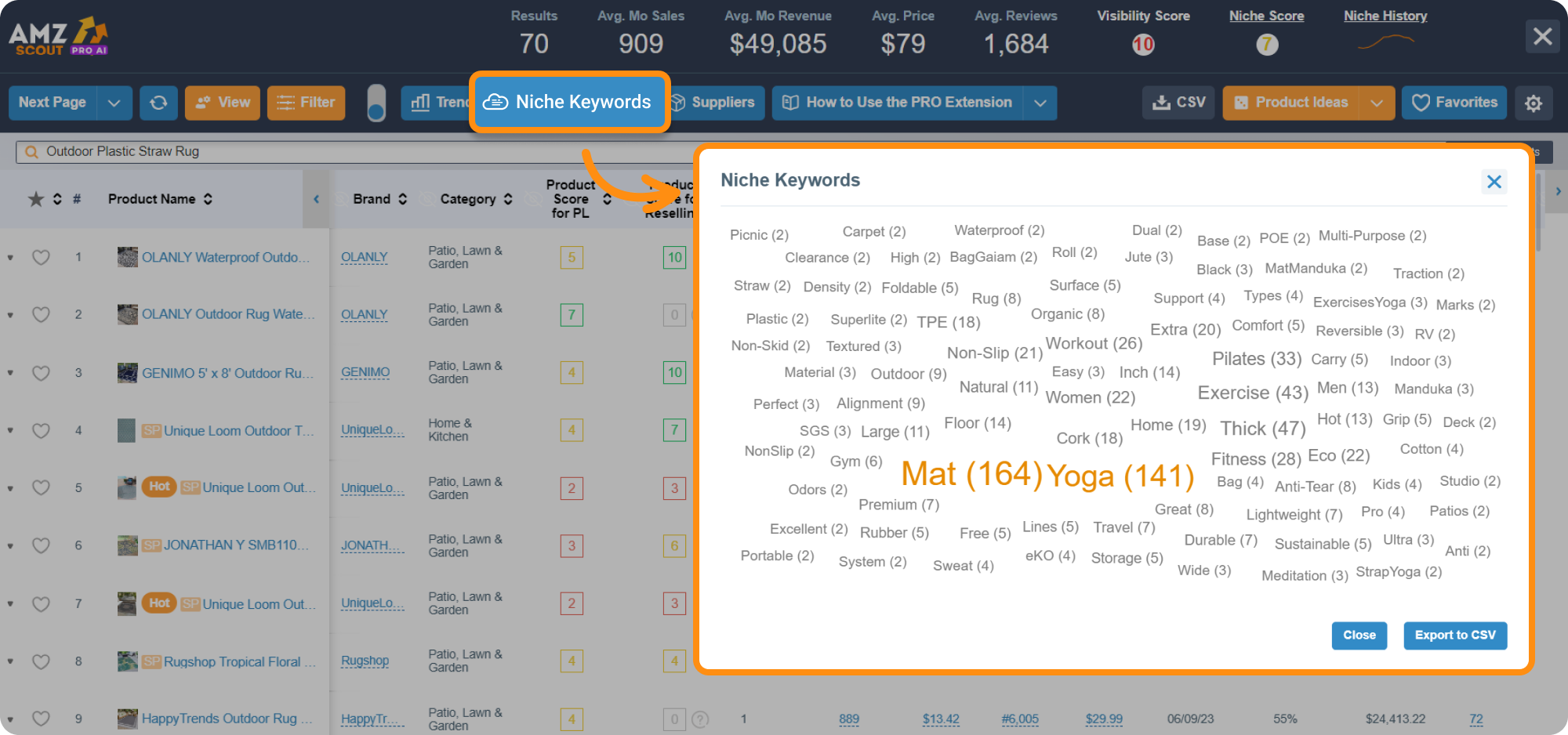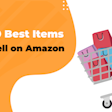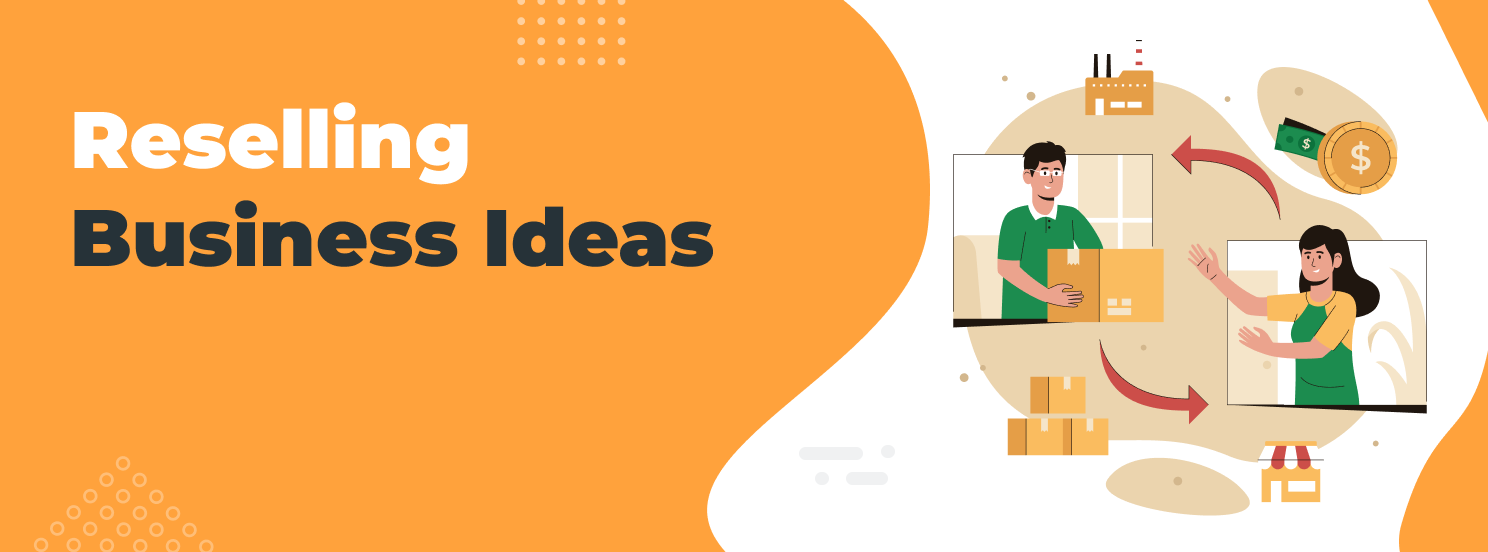
The Best Reselling Business Ideas and How to Start Successfully
In today’s thriving online marketplace, reselling has become a popular venture for entrepreneurs looking to capitalize on consumer demand for unique and sought-after products. With the right strategies and a keen eye for market trends, anyone can tap into this lucrative business model. In this guide, we’ll explore various reselling business ideas, how to start your own reselling venture, and tips for starting a successful business from home.
What is Reselling?
Reselling is the practice of buying products—whether new, used, or refurbished—from manufacturers, wholesalers, or other sellers, and then selling them at a markup to consumers. They do it either offline, or on online platforms like Amazon or Etsy. This business model leverages market demand, allowing individuals to turn a profit without having to create products from scratch. A reseller typically identifies trending or in-demand items, source them at a lower price, and then sells them online or through brick-and-mortar shops, making it an accessible entry point into the retail world.
Reselling can be approached in various ways, including traditional resale methods like online or retail arbitrage, and dropshipping. Dropshipping allows resellers to sell products without holding inventory; instead, they purchase items from suppliers only after making a sale. This eliminates the need for storage and upfront investment in inventory, making it a popular option for those just starting.
10 Reselling Business Ideas
Here are ten of the best, most profitable reselling business ideas for product categories to consider if you’re looking to enter the reselling market.
1. Clothing
The clothing resale market has surged in recent years, driven by the growing popularity of thrift culture and sustainable fashion. Resellers have various options when it comes to sourcing items, including gently used clothes from thrift stores, clearance sales, and online marketplaces. In addition to these, many resellers buy wholesale from platforms like Alibaba to sell on platforms like Amazon or elsewhere. Curating a unique collection, whether it’s vintage pieces or activewear, can help attract fashion-conscious consumers. By focusing on a specific style or niche, you can set your reselling business apart from the competition.
2. Sneakers
Sneaker culture has turned into a billion-dollar industry, with limited-edition releases fetching exorbitant prices on the resale market. Understanding the sneaker market, its trends, and how to authenticate products is crucial for success in this niche. Sneakers are not only fashionable, but are also a solid investment as their value often appreciates over time.
3. Antiques
Antiques and vintage items appeal to collectors and enthusiasts alike, making this type of product a potentially lucrative venture. Resellers can source these items from estate sales, auctions, and flea markets. Knowledge about historical value and market demand is key to pricing and selling antiques effectively. Creating detailed listings with high-quality images can enhance the appeal of your antiques to potential buyers, increasing the likelihood of a successful sale.
4. Electronics
With the rapid advancement of technology, reselling electronics such as smartphones, tablets, and gaming consoles can yield high profits. Sourcing refurbished or used electronics from retailers or online marketplaces allows resellers to offer popular products at competitive prices. Additionally, emphasizing product condition and warranties can enhance appeal to potential buyers. Staying informed about new product launches and trends in the electronics market will help you identify profitable opportunities.
5. Subscription Boxes
The subscription box market has gained traction, offering consumers curated products delivered to their doorsteps. Resellers can create themed subscription boxes by sourcing products at wholesale prices and selling them at a markup. This model allows for creativity and customization, catering to niche markets such as beauty, snacks, or fitness. By carefully selecting items that fit the theme, resellers can create a unique shopping experience that encourages customer loyalty.
6. Designer Handbags
The luxury handbag market remains strong, with many consumers eager to invest in designer pieces. Resellers can source authentic second-hand designer handbags from consignment stores or online platforms like The RealReal. In addition, some buyers focus on acquiring hard-to-find or highly sought-after bag models, like the Hermés Birkin, which can be resold at a premium to customers who are willing to pay double the price to avoid long wait times. Building trust with buyers through authenticity guarantees and detailed product descriptions is crucial in this niche. Emphasizing the quality and craftsmanship of designer handbags can attract buyers seeking luxury at a more accessible price point.
7. Collectibles
Collectible items, from trading cards to limited-edition figurines, have a passionate following and can command high resale values. Resellers can tap into this market by sourcing items from estate sales, conventions, and online auctions. Understanding the specific interests of collectors and market trends will help resellers identify high-demand items. Creating a solid online presence through social media and dedicated websites can help resellers connect with fellow enthusiasts and grow their customer base.
8. Domains
Domain resale involves purchasing valuable domain names and reselling them at a profit. With the growing importance of having an online presence, businesses are willing to pay top dollar for memorable and relevant domain names. This niche extends to digital products, including websites and digital assets, allowing resellers to explore various online opportunities. Investing in domain names that are catchy, short, or keyword-rich can lead to significant profits, especially as online businesses continue to flourish.
9. Estate Resale
Estate resale involves selling items from estates, often through auctions or sales. This niche can encompass various categories, from furniture to collectibles. Resellers can profit by identifying valuable items in estates and marketing them effectively. Building relationships with estate sale companies can provide early access to desirable items and increase the chances of successful sales.
10. Toys and Games
The toy market remains robust, with collectors and parents alike searching for the latest trends. Resellers can source popular toys and games from clearance sales, liquidation events, or wholesale distributors. Understanding the demand for both nostalgic and trending items can lead to profitable sales. Engaging with communities of toy collectors and parents can also help resellers identify what products are currently in demand.
In summary, starting a resale business offers diverse opportunities across various niches, from clothing and sneakers to antiques and electronics. By carefully selecting and sourcing products that resonate with specific audiences, resellers can tap into lucrative markets while leveraging platforms like Poshmark, StockX, and eBay. Whether you opt to focus on trendy items, vintage finds, or collectibles, aspiring resellers can find success by understanding market demands and cultivating a unique shopping experience for their customers.
How to Start a Resale Business
For those looking to resell physical products, platforms like Amazon provide an ideal marketplace to reach a vast audience. For resellers, Amazon offers a vast customer base, built-in trust, and convenient tools like Fulfillment by Amazon (FBA) that provide efficient logistics. Its global reach and marketing features make it easier to manage sales, scale quickly, and grow a business with minimal hassle.
Below, you’ll find a guide on how to start your reselling business.
Step 1: Choose Your Niche
Identifying the right niche is crucial for establishing a successful reselling business. The way you define your niche can significantly impact your overall success in this competitive landscape. By taking a systematic approach, you can find a niche that not only resonates with your personal interests but also meets demand in the marketplace while generating a profit. This careful alignment will help ensure that your reselling venture thrives and stands out among the myriad of options available to consumers.
Consider using the AMZScout PRO AI Extension to analyze potential niches on Amazon, as this will save you loads of time. Let’s review how to use this tool:
Install the AMZScout PRO AI Extension. Begin by installing the AMZScout PRO AI Extension from the Chrome Web Store to enhance your Amazon product research capabilities.
Initiate your search. Enter any product name from your curated list into the Amazon search bar to see relevant results and data.
Access the Extension. Click on the AMZScout icon located in the upper right-hand corner of your browser to activate the extension and unlock its powerful analytical features.
Evaluate the niche’s historical performance. In the upper right-hand corner of the window that opens, you'll find essential metrics to assess:
Niche Score: This score represents an evaluation of the niche's potential, factoring in elements such as demand, competition, and profitability. Focus on niches with a score of 7 or higher, as this indicates a strong likelihood a success and market viability.
Niche History: This feature provides a detailed view of the niche's demand evolution over time, offering essential insights into whether it experiences seasonal fluctuations or maintains consistent interest.
Taking the time to research niche demand, competition, and profitability will give you a strong foundation for success. By choosing the right niche that aligns with both market trends and your personal interests, you can build a sustainable and profitable reselling business that stands out in a competitive marketplace.
Step 2: Analyze a Specific Product in the Niche
Before selling a specific product, sellers need to go beyond general niche research and thoroughly understand the item they plan to offer. Gaining insights into the product’s performance, demand, and other helpful metrics can give you a competitive edge.
Let’s see which metrics you need to analyze for a product using the AMZSout PRO AI Extension (continuing the instructions from Step 1):
Product Score for Reselling: This score is based on total competition and sales. A high score (7 and more) indicates strong potential for consistent reselling profits. So if your product score is 7 or higher, continue checking other metrics (because if not, it’s better not to waste your time, and just choose another product).
Product History: Examine the product's sales performance and pricing trends over time. This will show you how its popularity has fluctuated and whether prices have increased or decreased. Understanding these trends can help you forecast future sales and adjust your marketing strategy accordingly.
Profitability: To evaluate the profitability of a product, use the Profit Calculator, which factors in any FBA fees and additional costs you enter, such as shipping or packaging. This tool will help you calculate key metrics like net margin, return on investment (ROI), and estimated monthly profits. Calculating your potential profitability accurately ensures that you're making informed decisions about which products to resell and how much of a profit you can expect.
Number of Sellers on the Listing: Check how many sellers are already on the listing. Ideally, the number of sellers should be between 2-15. If there are more than 15 sellers, the competition will be too strong to handle.
Reviews: High ratings for this specific product indicate customer satisfaction and trust, while negative reviews highlight potential issues, such as quality concerns or usability problems. By studying both positive and negative feedback, you can identify ways to improve your approach, offer better customer service, or address common complaints to stand out from other sellers.
Keywords: Understanding the keywords associated with your niche can significantly enhance your visibility on Amazon. By analyzing which keywords drive traffic and conversions, you can use them when launching your PPC ads to attract more potential buyers.
These steps will allow you to gain a comprehensive understanding of your chosen niche and empower you to make informed decisions that drive your reselling success.
Step 3: Source Your Products
For resellers, it’s very important to find a reliable supplier who can offer a reasonable price. A trustworthy supplier not only ensures consistent quality, but also fosters a positive business relationship. By carefully evaluating your options, you can secure the best deals while maintaining the integrity of your products.
Here’s a brief list of where you can find products for reselling, both online and offline:
Marketplaces: eBay, Amazon, Alibaba, and Facebook Marketplace
Wholesale websites: Sites like Wholesale Central or DHgate
Auctions: Liquidation.com for surplus inventory, and local estate sales for antiques and collectibles
Second-hand stores, flea markets, and garage sales: Local thrift stores, various vendors at flea markets, and neighborhood garage sales for unique finds
Discount stores or clearance sales: Retailers' online stores often feature clearance sections.
By exploring both online and offline avenues for sourcing products, resellers can uncover a wealth of opportunities to find high-quality items at competitive prices, ultimately maximizing their profit potential.
Step 4: Set Up an Online Store
You can create an online store using platforms like Shopify or WooCommerce, or establish an account on Amazon. Promoting your store through social media and online marketing can also help you attract customers. Make sure your store design is user-friendly and visually appealing to enhance the shopping experience. For these reasons, Amazon is a great choice for beginner sellers because you don’t have to build your store from scratch, since the design is already in place. Plus, the marketing costs are relatively low, making it an accessible option for new sellers.
Step 5: List Your Products
Before creating your listing, check if your product is already being sold on Amazon. If it is, you can simply join an existing listing with other sellers. If not, you’ll need to create your own. As you complete this step, make sure your listings are optimized for searches. Use high-quality images and detailed descriptions to showcase your product's value, and include all relevant keywords in the bullet points so your product can be found easily.
If you don’t want to spend time on this process or aren’t sure how to optimize your listing, consider ordering a service from SellerHook. This will allow you to receive an optimized listing along with a list of keywords curated by professionals.
Step 6: Market Your Reselling Business
Utilize social media, email marketing, and paid advertising to promote your reselling business. Engaging with your target audience can drive traffic and increase sales. Consider running promotions or giveaways to attract new customers and build brand loyalty.
Step 7: Manage Sales and Shipping
Stay organized by managing your sales and shipping processes effectively. Use inventory management tools to keep track of your stock levels and streamline fulfillment. Your selling strategy can be Wholesale, or Dropshipping, or Online Arbitrage. Sellers can either focus on wholesale or arbitrage, in which case, selling on Amazon means they have an option to ship their products to a warehouse for storage, and Amazon takes care of the rest. However, if you choose to engage in dropshipping, you’ll need to handle these logistics on your own to ensure that customers don’t have to wait too long for their orders. If you opt to utilize the dropshipping strategy, make sure you're familiar with Amazon's dropshipping policies and requirements.
Remember that providing excellent customer service and timely shipping can lead to positive reviews and repeat business.
Starting a reselling business involves several strategic steps to ensure success in a competitive market. Additionally, effective marketing and streamlined management of your sales and shipping processes will help attract customers and foster loyalty. By following these guidelines, you can build a thriving reselling business that meets the needs of your target audience.
Conclusion
Becoming a reseller can be a highly fulfilling opportunity for those who are prepared to invest the time and effort in thoroughly researching and understanding their chosen niche. With numerous profitable opportunities available—from clothing and electronics to collectibles and domain names—there’s a wide array of products to buy and sell. Whether you choose to operate from home or set up a dedicated workspace, the world of reselling offers the flexibility to create a profitable business model tailored to your lifestyle and interests.

